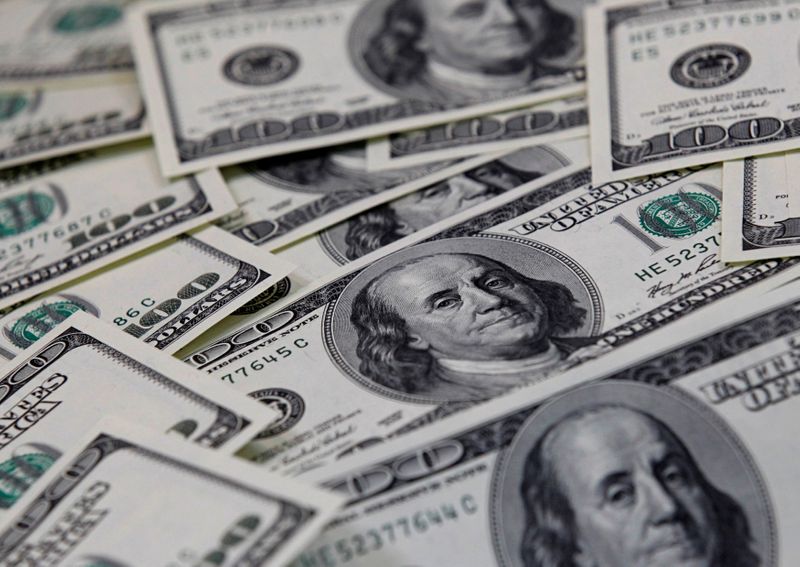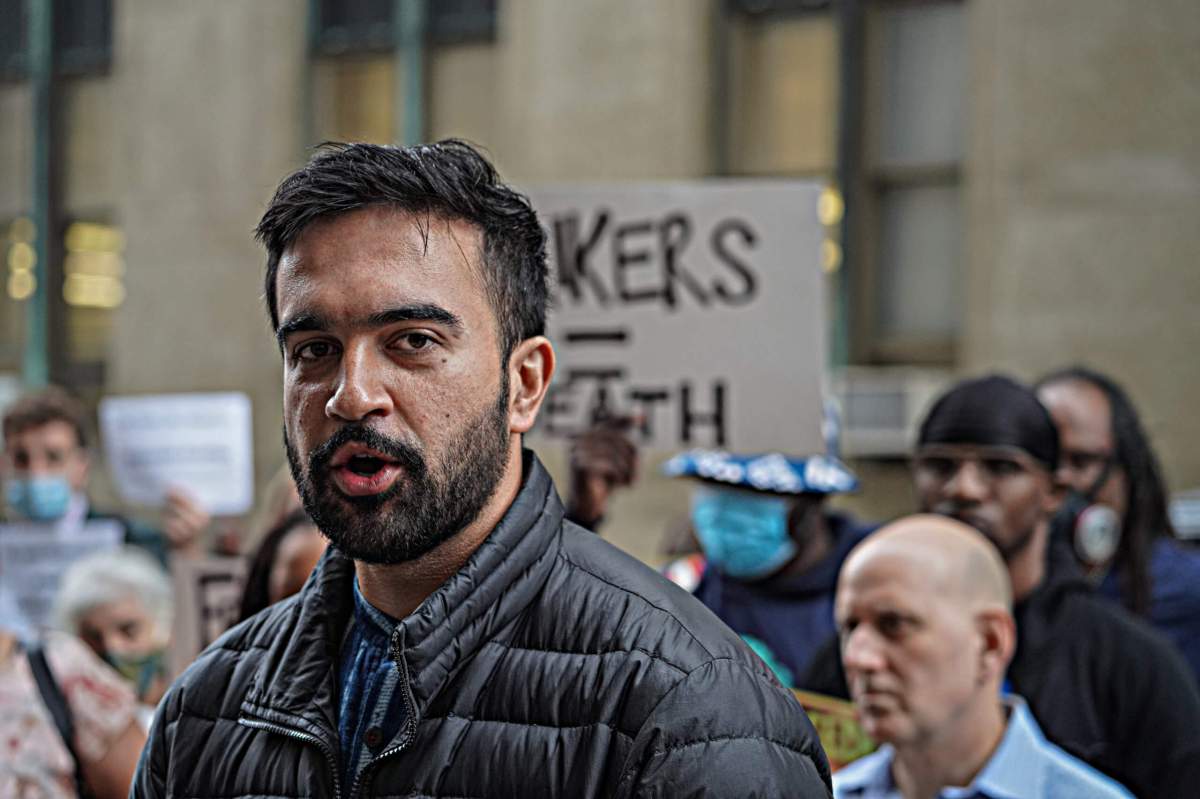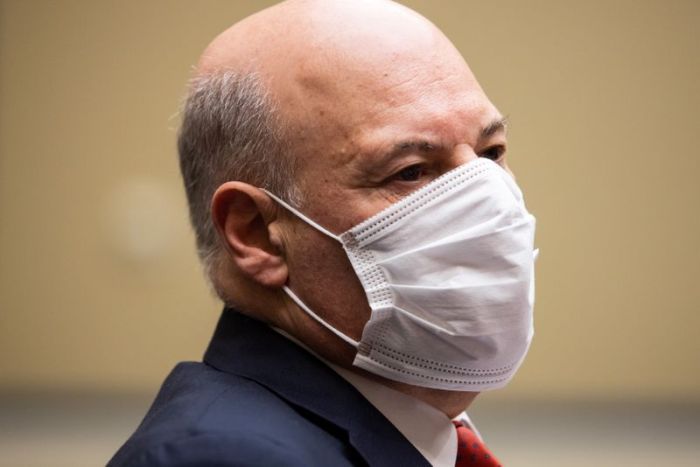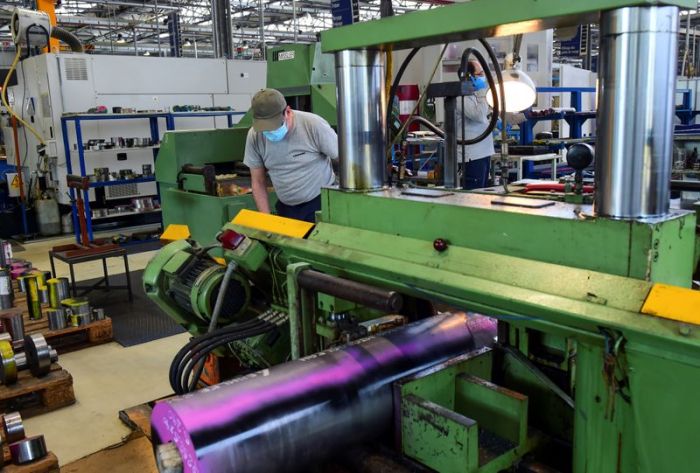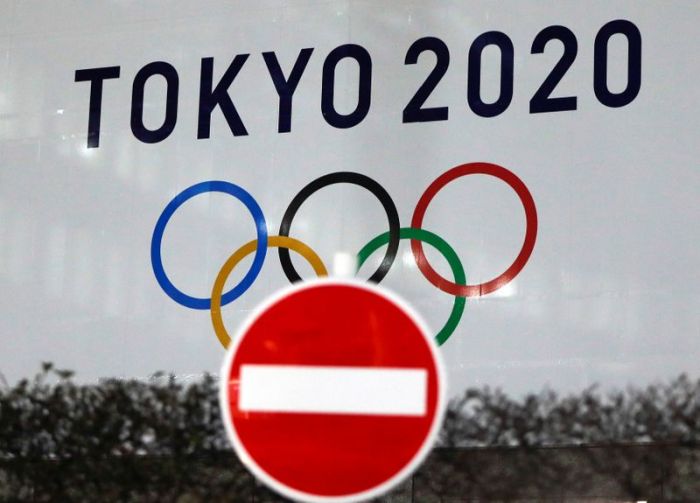NEW YORK (Reuters) – The dollar fell to a one-week low on Thursday as the European Central Bank said it would keep a lid on borrowing costs and an auction of 30-year Treasury bonds was met with sufficient demand to help stabilize yields, giving a boost to riskier assets.
The ECB said it was ready to accelerate money-printing to keep eurozone yields down, signaling to skeptical markets it was determined to lay the foundation for a solid economic recovery.
In the United States, the response to the Treasury auction, which followed 3-year and 10-year auctions earlier in the week, helped allay concerns about investors’ ability to absorb an increase in debt needed to finance the response to the pandemic.
“We’ve had a series of good news this week as far as the Treasury auctions are concerned and certainly the ECB delivered a little bit more than what we were expecting as far as being a little bit more dovish and try to up its purchases,” said Mazen Issa, senior FX strategist at TD Securities.
“It’s a signal that we may be looking at a fairly significant tailwind behind risky asset prices.”
Investors had been concerned the auctions could go poorly after a weak seven-year sale last month helped to spark a dramatic sell-off in government debt prices.
World equity markets surged, with the S&P 500 and Dow indexes hitting all-time highs on Thursday, helped by a raft of positive news, as weekly jobless claims fell more than expected and U.S. President Joe Biden signed his $1.9 trillion stimulus bill into law.
The “risk-on” tone in the market was helped by soft U.S. consumer prices data on Wednesday that helped ease concerns about a possible spike in inflation as economies reopen from the COVID-19 pandemic.
“The market had probably got itself a little bit too oversensitive about rising runaway inflation – which there isn’t yet,” said Kit Juckes, head of FX strategy at Societe Generale.
The safe-haven dollar was down 0.41% at 91.435 against a basket of currencies, its third-straight day of declines after touching a three-month high of 92.506 on Tuesday.
The euro was around 0.44% higher against the dollar, at $1.19815. It is down around 2% this year.
“The European outlook has disappointed many people and the expectations for the eurozone are still beleaguered by COVID-19, and that’s kind of preventing the euro from really taking off today,” said Edward Moya, senior market analyst at FX broker OANDA.
Elsewhere, Australian and New Zealand dollars rose for the third session in a row, both at their highest in a week versus the U.S. dollar, helped by rising commodity prices.
In cryptocurrencies, bitcoin was up 2.6% at $57,300.83. The digital currency has recovered from some recent losses but not surpassed its all-time high of $58,354.14, reached on Feb. 21.
(Reporting by John McCrank in New York; additional reporting by Elizabeth Howcroft in London; Editing by William Maclean, Kirsten Donovan and Jonathan Oatis)

